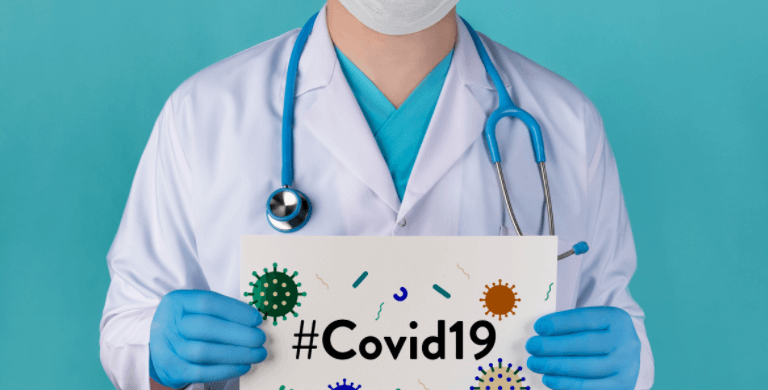The coronavirus pandemic has created a global disaster as the virus led to the loss of millions of lives, triggered unprecedented challenges to healthcare systems, and disrupted the global economy. The devastating impact on the economy is scary. Aside from the rising death toll, thousands lost their jobs, and millions of people are at risk of falling into poverty. Even worse was the incredible milestone recorded in the U.S. The US COVID-19-related death toll has surpassed 500,000 – a staggering reality underscoring the virus’s devastation as healthcare providers scrambled to put the pandemic under control. The vaccines were quickly developed, and the FDA granted EUA to vaccines from Pfizer and Moderna, hoping to speed up the vaccination process as fast as possible to prevent another surge.
While the pandemic ravages on, a more complicated episode is emerging regarding COVID-19 worker’s compensation cases and their effect on practices. As states relax the strict COVID-19 rules by allowing businesses to reopen, questions arise regarding employers’ liability about employees contracting the virus in the workplace.
Even though many businesses have transitioned to a remote working model, businesses like aviation, healthcare, transportation, manufacturing, construction, retail, and distribution cannot do so easily. Consequently, their workers will be at risk of exposure to the virus through close contact with coworkers and customers. By comparison, health care workers face similar challenges while providing care to COVID-19 patients. Ultimately, a potential increase in occupational illnesses is inevitable. The worker’s compensation system’s impact could be significant, including more claim frequencies, higher overall costs, and more financial and administrative burdens for many employers.

Dr. Mona Khanna, a board-certified occupational and preventive medicine specialist, commented to Top Doctor Magazine, saying, “There will be more compensation claims… in fact, the number of compensation claims will be higher and in direct proportion to a specific region’s population.” She went on to suggest that the compensation issue is best understood by attorneys who were involved right from the start. “The right course of action would be to point out attorneys that have become involved in the process at an early stage,” said Dr. Khanna.
With a continuous flow of compensation claims, there is more pressure on companies than ever. People are turning to their insurance carrier and discussing the parameters of the long-term effects.
In most compensation claims, there is no immediate gratification. Instead, these investigations are unique and stand on their terms. Also speaking on the compensation claim issues, Brandi Prejean, a board-certified expert on workers compensation and an insurance defense attorney, provides a perspective regarding the sizable challenges employers face. Employers want to know how to protect their employees, manage their payroll amid the repeated compensation claims alleging workplace exposure to the virus. “When the virus hit, I got a barrage of questions from people, but I didn’t have an answer at the time. I did a crash course and turned to the medical community to get as much information as necessary to formulate a better legal response.”
Employers were determined to mandate vaccination and PPE on employees since they have the obligations to protect them and create a safe working environment for their workers. Brandi Prejean retorted, “You have to balance protecting the interest of the public at large with the constitutional right of the individual, and that is the delicate balance the pandemic created.” She repeated that the pandemic created an unprecedented situation regarding compensation claims, and the authorities must take appropriate legal measures to handle potential problems.
While frontline workers grappled with the virus, policymakers across the country are perturbed regarding how worker’s compensation insurance would help employees infected with the virus. Even though worker’s compensation is designed to benefit employees and employers, it doesn’t cover illnesses like flu or cold, including coronavirus and other ailments that cannot be tied to the workplace. As COVID-19 is set to upend these rules, new measures or legislation are needed to shield businesses against lawsuits when employees fall sick or die after being exposed to the virus.

While policymakers are working hard to extend the compensation coverage, Dr. Khanna insisted that compensation claim investigation associated with COVID-19 is unpredictable and requires more thorough research. In comparison, this research is not so different from conducting interviews and asking questions that would help trace the virus’s source of contraction. “I’ve been into the worker compensation world for a long time, and I’ve never seen anything like this,” said Dr. Khanna. When it comes to track-and-trace of the virus, various questions come into play. “If an employee files a lawsuit against an employer for contracting COVID-19 at the workplace, the COVID-19-specific worker compensation claim may not be as simple as people realize,” added Dr. Khanna. On the other hand, if someone suspects that they got the COVID-19 from a restaurant, it would fall under the umbrella of personal injury. The burden of responsibility would be on the restaurant that failed to uphold COVID-19 safety precautions.
Speaking from a legal standpoint, Brandi Prejean disclosed, “We had to change our questions. At the beginning of the pandemic, we had to investigate all these cases that were being filed. We investigated people individually. We asked weird questions because it’s the only way we can investigate this case and make sense of it.” Brandi informed and continued, “If you claim that your job puts you at higher risk than the general public, we have to ask what your potential exposures are. For example, your child who plays sports and comes to the house to live with you poses a higher exposure than you going to work and wearing a mask. You probably have a higher exposure at home.”
During the massive influx of COVID-19 patients, healthcare professionals were overwhelmed. As a result, hospitals created new patient care units, arenas, tents, and other unlikely places, while some physicians were forced to practice beyond their expertise to save more lives. Even though they were determined to put their lives on the line, a potentially dicey situation lurks, and our frontline heroes who were risking their lives might lose their reverence in a potential flood of COVID-19 compensation lawsuits after the onslaught.
Lawyers defending frontline heroes and employers are already advising their clients on avoiding liability when they are forced to choose between patients. Physicians need to prepare for the triage head-on as their actions amid the chaos will determine whether cases against them will be dismissed or escalated over the death of a patient. Speaking about the upcoming compensation claim issues, Brandi Prejean told us that bills are being filed on COVID-19 compensation cases, and they are developed on very preliminary data. “I am prepared to testify against them here [in Texas] because inaccurate data cannot be adopted as a workers compensation case. There is a danger in that,” said Prejean. Dr. Mona Khanna, the award-winning medical journalist and former medical director pointed out that more research and thorough investigation is crucial. “In retrospect, it makes it all the more important to understand the causality trends, the number of cases, in comparison to other infectious diseases that can penetrate the work or commercial space. Once you establish clear parameters, then you can investigate without blurring the thin red line of journalism.”

In her own words, Brandi Prejean revealed to us, “I have handled this disputed employee compensation case, and the argument that I am using to create a threshold is the CDC guideline and what their definition of high-risk exposure is.” Prejean argued based on all the cases she has handled thus far. “My recommendation for clients who have denied cases discovered that their workers did not contract it at work. Suppose someone ignores the CDC guidelines, which is a duration of longer than 15 minutes closer than 6 feet without proper PPE of a person that becomes symptomatic days later. In that case, I don’t believe they meet the threshold of what we will consider as workers compensation exposure.” Prejean hopes each state will adopt this CDC guideline-induced logic because it has exonerated innocent employers and physicians.
As states allow businesses to reopen, policymakers aim to navigate the notoriously complex workers’ compensation to address
the drawbacks, benefits, and several key issues that are unresolved. While sharing her opinion, Brandi Prejean told us,” the legal community is going to have to be careful regarding what legislation we allow, which is why I have continued to be adamant about creating laws.” Prejean reiterated the risk in acting based on developing information because it is dangerous. “If we have learned anything from 2020, it is that we have to be prepared to evolve as information changes.”
Rather than creating legislation that will allow for fraudulent claims in the coming months, healthcare providers deserve legal protection from malicious claims as long as the protection does not excuse negligence or wanton intent to cause harm.






0 Comments